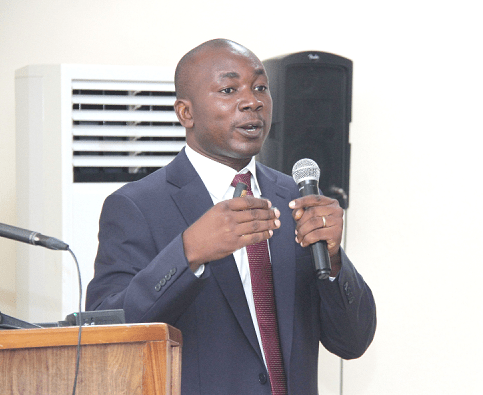Professor Godfred Bokpin, a Senior lecturer at the University of Ghana Business School (UGBS), has asserted that banks in the country will need to recapitalize to sustain, survive and support the economy in the next three years.
The recapitalization exercise, Prof Bokpin notes, will be imperative given the large liquidity losses and impairments on banks’ capital as a result of the domestic debt exchange programme.
Another factor that will account for the recapitalisation exercise, as stated by the Proffesor, is the depreciation of the cedi which has slashed the total capital of banks by some 35% since the last recapitalisation exercise in 2017.

Speaking at an Economic Sustainability Summit on Tuesday, April 4, 2023, Prof Bokpin noted that banks in the country have incurred liquidity losses amounting to some GHS 6bn with impairment losses in the range of GHC 41bn.
Speaking further, Prof Bokpin remarked that although government has successfully undertaken the domestic debt exchange programme, the IMF is still not ready to approve the bailout programme because of the $5bn fiscal deficit in the 2023 budget.
Professor Godfred Bokpin averred that Ghana’s 2023 budget deficit alone exceeds the IMF bailout by $2 billion. This, he said, means that even if the IMF approves the program, it would still not be sufficient to address Ghana’s fiscal challenges.
“The IMF knows very well that without assurance of either debt relief or fresh funding from Ghana’s multilateral and bilateral partners, the program can only achieve limited effect.”
Professor Godfred Bokpin

He further explained that Ghana’s recent courting of the US’ favour in pursuing an IMF bailout may have played a role in securing a staff-level agreement, but that the size of the deficit is a critical issue that the IMF cannot overlook.
Ghana’s Debt Leads To The Tarnishing Of Her Agricultural Recognition
According to Prof. Bokpin, Ghana’s debt situation is holding the country back from developing, stating that: “Ghana is trying to reach the destination that it is proud of, but debt is the main obstacle.”
Seventy percent (70%) of Ghana’s domestic revenue, he said, goes to debt servicing – which leaves very little space for growth and enhances spending.
“The IMF debt sustainability concluded that our debt is unsustainable, and they meant that we needed to take steps to restructure our debts.”
Professor Godfred Bokpin
MoF eventually announced in September 2022 that the country’s debt to GDP ratio in present value terms was 105 percent and was projected to reduce to 55 percent by 2028.

“Ghana is classified as a medium debt-carrying country per the IMF debt sustainability framework. So if you are a medium debt-carrying country, then your debt-to-GDP ratio in present value term should not be more than 55 percent. However, Ghana is above 100 percent. Ghana has lost its status as an agricultural nation to service.”
Professor Godfred Bokpin
Even with the service status, he said, it is only based on retail and wholesale thereby relying heavily on importation.
“Once the country imports heavily, it creates jobs for other countries and creates unemployment domestically. Ghana, from independence, was known for agriculture but today Ghana is not known for agriculture. Ghana is known for service but the question is, is Ghana really a service-based economy? The answer is no.
“Typically, if you look at the economic transformation when a country begins from agriculture and suddenly service is leading, it tells you that that economy is matured – so it has gone through that process. In the case of Ghana, the country started off agriculture being the leading contributor to the GDP and then skipped industry – that is what the data is telling us and then we jumped straight to service.”
Professor Godfred Bokpin
He further added that Ghana’s service sector is actually not quality service, it is the sector that is driven by retail and wholesale, largely import.
“Once your service sector is leading particularly in the area of retail and wholesale, along side with the industry not doing well, then it means the bulk of what is happening is going to be important, typically once you import, you are important unemployment.”
Professor Godfred Bokpin
Read also: Seth Terkper Cautions Against GHC 22bn “Fiscal Offset” In 2023 Budget





















